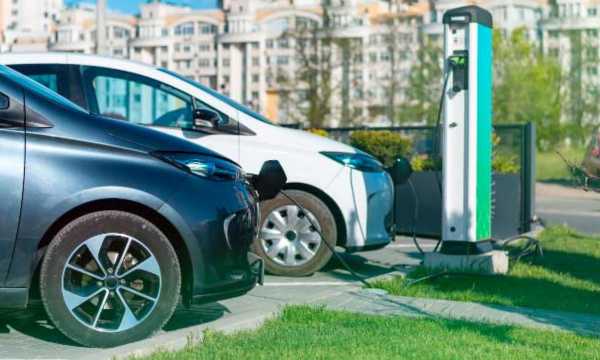Unraveling the True Cost of Electric Cars
The automotive industry is undergoing a massive transformation as electric vehicles become increasingly popular on the road.
In today’s era of environmental awareness and technological advancements, electric cars are very attractive. But before you jump on the electric bandwagon, it’s important to understand how much these stylish, eco-friendly machines cost.
1. Upfront Costs of Electric Cars
The high price of electric cars initially deterred many people from buying them. It may seem expensive at first, but it is important to consider the long-term benefits. Tax breaks and other forms of government support can reduce the price difference between regular cars and electric cars, making electric cars more attractive.
2. Charging Infrastructure
One of the biggest concerns of people looking to buy an electric car is how easy and convenient it is to charge it. Fortunately, the charging infrastructure is developing rapidly and there are charging stations everywhere. Home charging stations cost money upfront, but can save you a lot of money in the long run if you don’t have to go to the gas station as often.
3. Repair and Maintenance Costs
A common misconception is that maintaining an electric car is more expensive than a petrol-powered car. Despite what some people think, electric cars have fewer working parts, which means they cost less to maintain. Understanding these differences can have a significant impact on how potential buyers decide what to buy.
4. Electricity Costs vs. Gasoline Costs
The price difference between gasoline and electricity is a key factor in calculating the long-term costs of electric vehicles. Charging electric vehicles (EVs) is often cheaper, especially as gasoline costs continue to rise. This change in the way you calculate costs can help you save a lot of money over the life of your car.
5. Environmental Impact and Cost Savings
In addition to the costs, the environmental impact of electric vehicles is also of great importance. A low carbon impact and potential government benefits for environmentally friendly choices can help further reduce the total cost of ownership.
6. The Value of Second-hand Electric Vehicles
Knowing the value of used electric cars can help you determine whether they will be profitable in the long run. Surprisingly, electric cars retain their value very well. Battery life and new technology are influencing factors in the resale market.
7. Technology Advancements and Cost Implications
As technology improves, the price of electric vehicles will likely drop. Continued research and development, especially in battery technology, is critical to reducing the overall cost of electric vehicles and making them available to a wider population.
8. Consumer Thoughts and Misunderstandings
Debunking popular myths about the cost of electric vehicles is important to encourage more people to use them. Breaking myths and dispelling false beliefs can help reach better-educated consumers.
9. Government Policies and Impact on EV Costs
Government policies and regulations have a major impact on the costs of electric vehicles. People considering buying an electric car can learn a lot by looking at the situation now and imagining what it will be like in the future.
10. Total Cost of Ownership (TCO) Analysis
It is important to thoroughly research the total cost of ownership (TCO) before making a choice. Comparing the total cost of ownership (TCO) between electric and gasoline vehicles can provide a more realistic financial picture by taking into account factors such as fuel costs, maintenance, and potential tax benefits.
11. Global Price Developments for Electric Vehicles
A worldview can be gained by looking at how differences between countries affect the price of electric vehicles. By discovering where electric cars are cheaper, those considering buying one can make a decision that’s right for their region.
12. New Advances in Battery Technology
Batteries power electric vehicles. Improvements in battery technology not only make electric vehicles more powerful but also help reduce production costs, making electric vehicles more accessible.
13. Affordability and Access Issues
Even as electric vehicles become more affordable, there are still issues that need to be addressed before they can be used by everyone. To grow the electric vehicle market, it is important to explore possible answers and projects.
Conclusion
In short, the actual costs of an electric car are higher than the purchase price. Anyone considering switching to an electric car should look at the big picture, including charging facilities, maintenance, environmental impact, and ongoing new developments.
FAQs
1. Are electric cars more expensive than regular cars?
While the upfront cost of electric vehicles may be higher, they are still affordable thanks to factors such as government subsidies and lower maintenance costs.
2. Do electric cars save gas in the long term?
Yes, the energy price for charging an electric car is often lower than the price of regular gasoline, saving you money in the long run.
3. How will government regulations impact the price of electric vehicles?
Government regulations and subsidies can have a significant impact on the price of electric vehicles, making them more attractive to buyers.
4. How will developments in battery technology change the price of electric vehicles?
As battery technology improves, production costs will fall, which could make electric vehicles cheaper.
5. Are the market values of second-hand electric cars and second-hand regular cars the same?
Yes, for reasons such as long battery life and new technology, electric cars often retain good value when resold.
 The Evolution of Electric Cars
The Evolution of Electric Cars
Electric cars, also known as EVs (Electric Vehicles), represent a revolution in automotive technology and environmental conservation. […]
More Car Buying Guides: Navigating Your Way to the Perfect Purchase
Car Buying Guides: Navigating Your Way to the Perfect Purchase
Embark on your journey to finding the ideal vehicle with comprehensive car buying guides tailored to help […]
More Electric Car Maintenance: 6 Effective Tips for Longevity and Performance
Electric Car Maintenance: 6 Effective Tips for Longevity and Performance
Electric cars are currently popular because they are better for the planet than traditional gasoline-powered cars. Electric […]
More